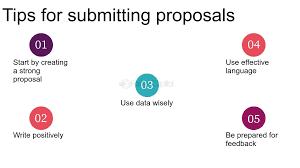Winning Proposals: Guide to Proposal Planning, Preparation and Submission

About Course
Crafting a winning proposal is both an art and a science—and it’s often the decisive factor in securing business, grants, or partnerships. Whether you’re responding to a government RFP, submitting a grant application, or preparing a business pitch, this course gives you the tools and insights you need to develop persuasive, polished proposals that stand out from the competition. Through real-world examples, practical strategies, and expert guidance, you’ll master every stage of the proposal process—from initial planning and research to final submission and client follow-up.
This course is designed to demystify the complexities of proposal planning, preparation, and submission. You’ll learn how to structure your ideas, communicate your value proposition, align your message with client expectations, and avoid the common mistakes that sink most proposals. By the end, you’ll have the confidence and capability to lead proposal efforts that win attention—and contracts. Whether you’re a novice or an experienced professional looking to sharpen your skills, this course offers actionable knowledge you can apply immediately.
Course Content
Introduction
Explanation of the importance of winning proposals
00:00Overview of the contents of the ebook
00:00